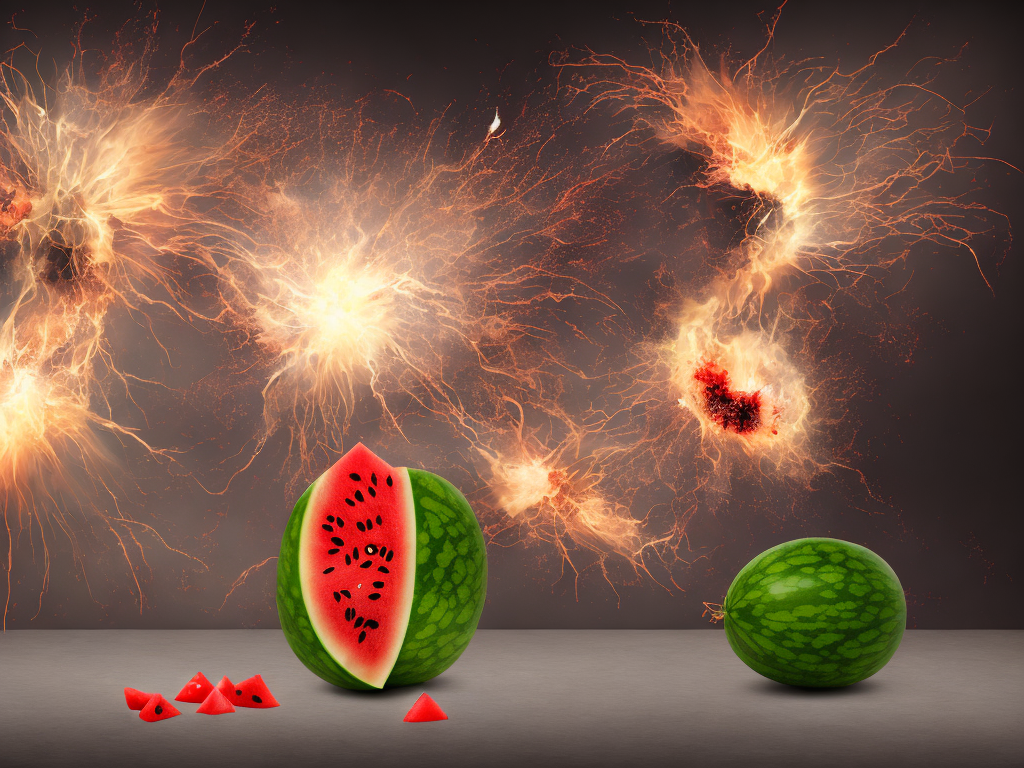
When you hear the words explosion and implosion, what comes to mind? Do you think of fireworks, bombs, or natural disasters such as volcanic eruptions or earthquakes? While these events can involve either an explosion or an implosion, the two terms actually have distinct meanings.
In simple terms, an explosion is a sudden, violent release of energy in all directions, often accompanied by sound and heat. On the other hand, an implosion is a sudden collapse inward, due to a decrease in pressure or an external force acting inwards.
To understand the differences between these two phenomena, let's dive into the science behind them.
Explosions
Explosions occur when energy is suddenly released from a confined space or a point source in all directions. This energy can be released in various forms such as heat, light, sound, and shock waves. Explosions can be caused by a range of factors such as chemical reactions, combustion, or nuclear reactions.
Chemical explosions are the most common type of explosion and occur when a chemical reaction releases a large amount of gas or heat. For example, an explosion can be caused by mixing two or more chemicals that react violently together. This type of explosion is used in fireworks and is also the cause of many industrial accidents.
Combustion explosions occur when a fuel and an oxidizer react together in the presence of heat and a spark. An example of this is a car engine explosion caused by a fuel-air mixture igniting in the engine's cylinders.
Nuclear explosions occur when the nucleus of an atom is split, releasing a tremendous amount of energy. These types of explosions are the most powerful and devastating and can be caused by nuclear reactors, nuclear weapons, or natural processes like the sun.
Regardless of the cause, explosions cause an outward release of energy and can be extremely dangerous. The impact of an explosion can cause severe damage to buildings and infrastructure and cause injury or death to people. The shock wave generated by an explosion can also cause harm to people and objects in its path.
Implosions
Implosions, on the other hand, occur when there is a sudden collapse of a structure or object due to external pressure acting inwards or a decrease in internal pressure. This sudden collapse is usually accompanied by a loud noise, but unlike an explosion, there is no outward release of energy.
One common example of an implosion is the collapse of a building during a controlled demolition. When a building is demolished, explosives are strategically placed throughout the structure to weaken its support and cause a controlled implosion of the building. This process allows the building to collapse in on itself, minimizing damage to surrounding buildings and infrastructure.
Another example of an implosion is the collapse of a vacuum-sealed container when the external pressure is higher than the internal pressure. This can happen when a container is sealed at high altitudes and then brought down to sea level.
Implosions can also occur in natural phenomena such as volcanic eruptions. When a volcano erupts, the pressure inside the volcano decreases, causing the magma to rise and eventually explode. However, during the eruption, the pressure inside the volcano can also decrease suddenly, causing the volcano to collapse in on itself. This is called a volcanic implosion and can be just as devastating as an explosion.
Conclusion
In summary, explosions and implosions are two distinct phenomena that occur when energy is abruptly released or applied inwards. Explosions release energy outwards in all directions, while implosions cause a sudden collapse inward due to external pressure or a decrease in internal pressure.
Both explosions and implosions can be dangerous and cause damage and harm to people and objects. Understanding the science behind these phenomena is important for preventing accidents and disasters.
Whether it is a controlled demolition or a natural disaster, it is important to know the difference between an explosion and an implosion so that appropriate measures can be taken to protect people and property. So next time you hear the words explosion or implosion, you will know exactly what they mean and what to expect.
 Self-Instruct
Self-Instruct